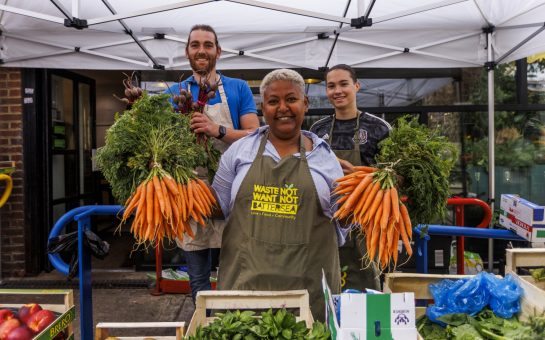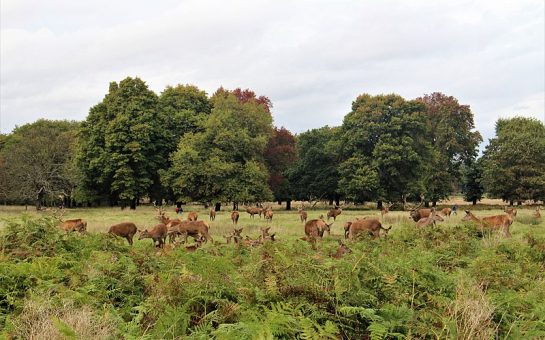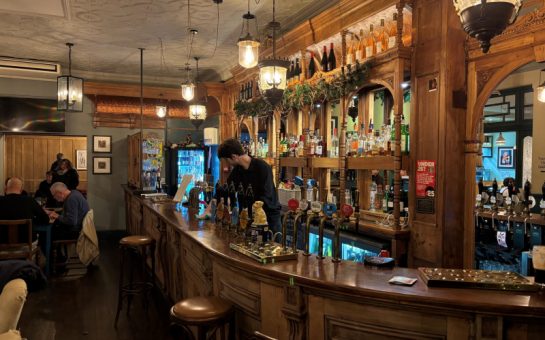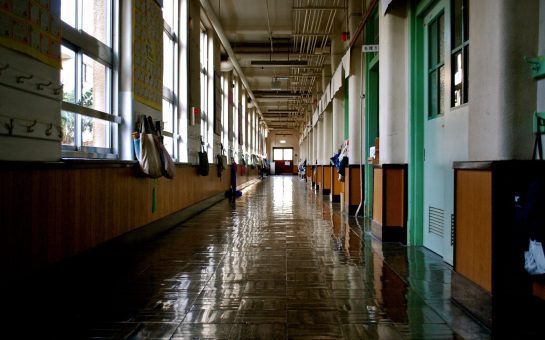David Churchill discovers a campaign educating young Londoners

David Churchill
The workshop at South Wimbledon Youth Centre had been set up to replicate a crime scene. Countless papers with names scrawled on were eerily scattered on the floor. Police tape was wrapped round the chairs. An arresting iconic logo strapped to a huge board oozed poignancy, saying ‘Stop This Ongoing Problem (STOP)’.
This was the backdrop for an anti-knife and gun crime workshop given by Mitcham resident, Alexander Rose, who is the protagonist of the STOP campaign which has taken London by storm.
The Merton Week of Peace workshop was just one of a series across London and few can be said to be giving back more to the next generation’s hopefuls than Alexander, whose prominence has earned him hero status.
The 21-year-old started the movement when he was just 17 in response to an event which still troubles him today. It encourages youngsters to shy away from street violence and devote their energies to more worthwhile activities.
Most of us can remember a defining moment in our lives when our course or destiny changes, he reflected as he addressed the young crowd.
For Alexander, this was when his friend, Eugene Attram, was stabbed to death in Mitcham in 2006 aged 16. He then revealed the names on the scattered papers were close friends and family who had been victims of knife crime.
“Eugene’s murder was the trigger for me wanting to do something about the gun and knife issue because no one was really saying stop at the time. I felt it was important to say something regardless,” he said.
Eugene was killed in a gang turf war which broke out between his Stick ‘Em Up Kids gang, and Mitcham’s Terror Zone.
Since that fatal day, Alexander has launched his campaign, sold over 70,000 t-shirts and pendants, and received a number of prestigious philanthropy awards. He has crossed paths with the likes of former Prime Minister Gordon Brown, Desmond Tutu, Dwain Chambers and Kelly Rowland.
But despite the limelight he insists: “It’s not about the people I’ve met, it’s about the doing. I’d rather be in a room full of young people than sitting having crumpets and tea with the Prime Minister.”
Alexander grew up in St. Thomas’s, Lambeth, before moving to an estate in Tooting where he witnessed gun and knife crime first hand.
“I was used to hearing someone getting beaten up. I’ve seen someone get shot in the face. I’ve seen a guy run past me with blood gushing out of his leg. Being around that sort of environment, it becomes normal, you just accept it.”
But things changed when he moved to Mitcham at 16. Mourning the death of Eugene galvanised him to break away from gang circles to help youngsters in Merton and across London.
“There has been a lot of times when I think things could have gone differently,” he said.
“When I was growing up in Tooting I was on the fringes, I could have gone either way, but I always knew deep inside of me that this wasn’t my lot. I knew there was more to life than all the youth violence and all the things that were happening in my community.
“I hope that I can have that effect in Merton as well because it is a community with an area of great opportunities and has so much to offer, and I would hate it to be tainted or dampened by a few actions that the minority of people carry out in the area.”
However, the activist knows he has his work cut out after figures released by the Metropolitan Police this year showed knife offences rose by 35% in Merton – the highest rise across all London boroughs.
“A lot of people I live near are actually moving out of Mitcham because they feel that with all the violence that they hear that’s going on and all the wars happening, they feel it’s getting a bad name,” he said.
But the young entrepreneur has certainly made the most of his chances. He is studying for a BA in Graphic Design at London College of Communication, and it was with his passion and flair for creative design that his campaign began.
“I just used to paint the design which I had created on cheap Primark t-shirts at first,” he said.
The homemade shirts became popular with classmates and a school teacher saw the potential and helped him to produce them professionally.
The campaign enjoyed some much needed publicity when Alexander featured in The Daily Mirror’s Save Our Streets Campaign aired on Channel 4 as part of the Battleground documentary series. T-shirt sales rocketed.
The proceeds have been used to launch and fund the campaign which has never received any public funding since its inception, but has been funded from the sales and Alexander’s own money.
The Save Our Streets initiative also allowed him to team up with Bob Evans, Senior Police Chief Official for London’s tackling knives coalition.
The collaboration ended in 700 guns and knives being melted down into Education is the Key pendants to reinforce the campaign’s message.
He said: “I was invited to a big board meeting to discuss the campaign at The Daily Mirror office in Canary Wharf where I met Bob Evans.
“I’d brought my sketchbook with me and showed everyone the pendants idea. Bob had access to the weapons and knew a steal factory where we could get them melted down. We never sold the pendants, we gave them away to people.
“Those 700 guns and knives are never going to be on the streets again. I really wanted symbolically to show that.”
Alexander’s work has since earned him the Anne Frank Award 2008, Body Shop Outstanding Achievement Award 2008, and the London Peace Award 2009.
His campaign is now endorsed by the Tutu Foundation after being introduced to Archbishop Tutu for all his hard work across London.
He is also working with the Damilola Taylor Trust to endorse Spirit of London 2010, an event which openly celebrates the achievements of young Londoners, and is working towards a new TV documentary.
But he maintains that he is doing nothing extraordinary and only wants to share his success to help inspire others.
He said: “We want to provide a platform for people in communities with flats and estates where youth violence maybe prevalent, and to give people within those communities a campaign platform that they can access.
“So if anyone wants to get in contact with us and use the STOP logo, or wants our resources to go and do something in their area we can make it freely available to them.”




